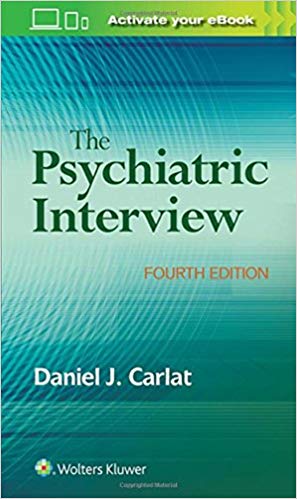Always the beautiful answer who asks a more beautiful question.
E.E. Cummings
I once overheard a medical professional ask a patient who had just suffered through a failed suicide attempt, “I bet you feel pretty stupid about the whole thing, don’t you?” Most reasonable people would recognize right away that this question was quite poorly phrased, and that a neutral, open-ended question such as, “How do you feel about the whole situation?” would have been far more appropriate. One doesn’t need a book for that.

However, The Psychiatric Interview (2017) goes a few steps further and provides readers with a veritable toolbox for making sensitive topics even easier to deal with. In fact, the book has an entire chapter on How to Approach Threatening Topics (page 25). Techniques include:
- Normalization: suggesting to the patient that their action or response was commonplace. For example, “You know, many people who attempt suicide feel guilty afterwards. What do you think about that?”
- Symptom expectation: for example, suggesting that you wouldn’t be surprised if the patient drank 20 or even 30 beers a day. When you set up the question that way, their “admission” to one or two six packs a day might seem like no big deal to them.
- Reduction of guilt: for example, asking someone who is prone to anger, “Do annoying people ever get on your nerves?”
- Talk the patient’s language: talk about “coke” or “crack” (rather than “cocaine”) if that’s the language the patient would use.
Admittedly, one needs to be careful with some of these techniques. You don’t want to leave a potentially enduring impression with any patient that maladaptive behaviors are okay.
In addition, one needs to be really careful to not lead a suggestible patient into conforming to the wrong diagnosis. As an unfortunate example, the book suggests screening for obsessive-compulsive disorder (OCD) with this “high-yield” question:
Do you have any symptoms of obsessive-compulsive disorder, such as needing to wash your hands all the time because you feel dirty, constantly check things, or having annoying thoughts pop into your head over and over?
The Psychiatric Interview (2017), page 194
In my opinion this as a great example of the type of question that should be strenuously avoided:
- First, it’s a compound question which can lead to false or misleading answers. Questions with multiple sub-questions should be broken up into simpler, single questions.
- Second, the question calls for conclusory interpretations rather than facts. It is essentially asking the patient to make (or refute) the diagnosis of OCD—and that’s not the patient’s job. Instead, the question should be crafted to elicit information that would help the clinician to make an appropriate diagnosis.
- Third, it’s a loaded question: patients with OCD may wash their hands excessively because they feel emotionally or ritually impure, not because they feel physically dirty. One needs to refrain from imputing motives to patients before even gathering the facts from them!
On balance, however, The Psychiatric Interview (2017) has far more useful strategies and suggestions compared to the “duds.” And if you use the information in the book thoughtfully and judiciously, you will become a much better clinical practitioner.
I therefore recommend The Psychiatric Interview (2017) very highly to anyone who interacts with patients.


Leave a Reply